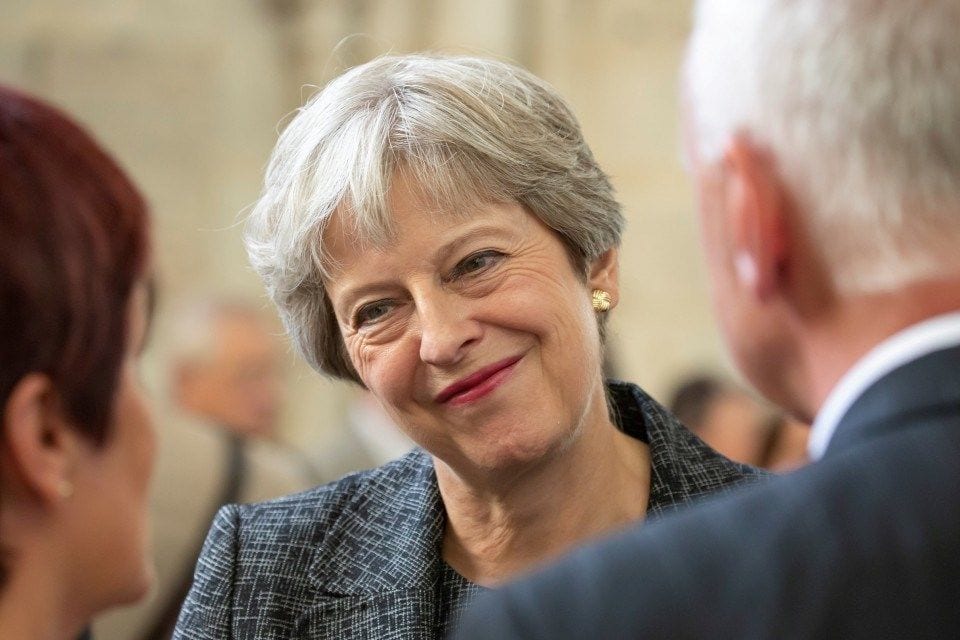Four weeks today, we’ll know for certain whether we’re expected to head to the ballot box on 23rd May to elect MEPs.
Nobody expected to be taking part in EU elections six months ago; least of all Theresa May. With her withdrawal agreement rejected by Parliament three times, and another delay to Brexit, all signs now point to them.
The only way to stop them is by passing the withdrawal agreement and delivering Brexit by 22nd May. It’s also the only thing keeping a lid on the inevitable all-out Tory war.
With no sign of a government compromise with Labour on the future relationship, the prime minster’s best hopes of passing the withdrawal agreement by 22nd May lie in uncoupling it from the future relationship. But this means getting around having to hold a meaningful vote, which is required by law. The only way to change that law is with another law.
So soon the government will announce it’s bringing forward a withdrawal agreement bill, to approve the withdrawal agreement without the need for a meaningful vote and to underpin it in UK law – two birds, one stone.
The Tories plan to pressure Labour into a choice: make the widest of wide U-turns, support the bill and deliver Brexit; or be blamed for EU elections and branded as blocking Brexit in the campaign for them.
Given she’s already said she’ll stand down when Brexit is secured, 22nd May is the last chance this scenario could play out if her gamble with the withdrawal agreement bill pays off. She’d be on her way out of Downing Street, firing the official starting gun on a Tory leadership contest.
But if the gamble fails, which looks likely, EU elections will pass and a clear path to the 31st October Brexit deadline opens up. The most enormous pressure on the prime minister to trigger the contest for her replacement, and let the Tory party agree a different course, is unleashed.
Given tonight’s 1922 Committee ultimatum she must set out a departure timetable for the event her agreement doesn’t pass, success or failure by 22nd May both look to have the same outcome for the prime minister.
Whatever happens, Theresa May’s premiership will be remembered only for Brexit. She now has four weeks to define whether she delivered it or failed.

Ryan Jackson
Ryan works in politics and is a contributor to PoliReview.




